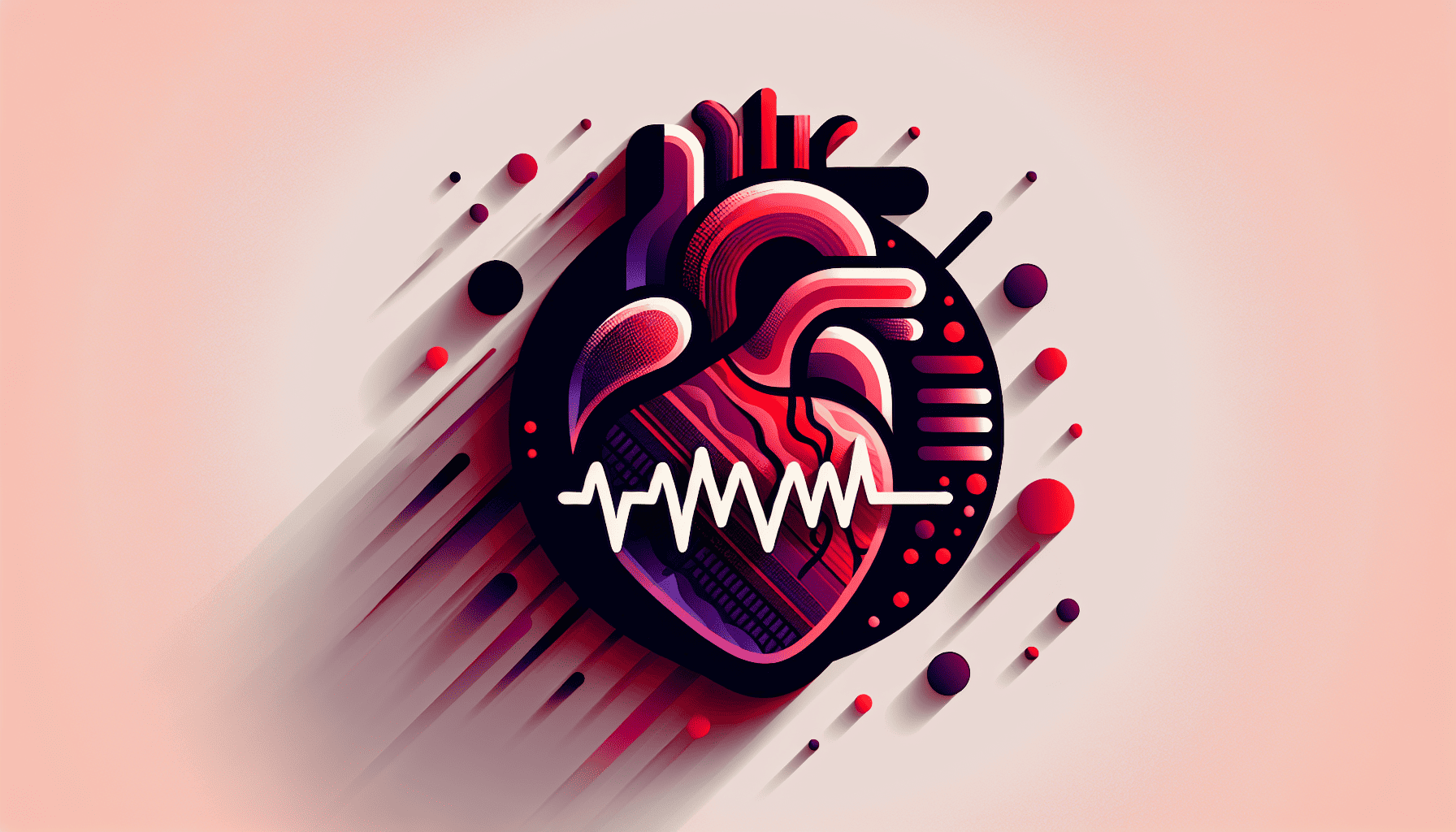The Impact of Alcohol on Cardiovascular Health
While alcohol consumption is a societal norm, it can lead to serious health conditions, particularly damaging the cardiovascular system. When alcohol enters the bloodstream, it can interfere with the heart’s functionality, leading to conditions such as alcoholic cardiomyopathy. This condition reduces the heart’s pumping efficiency and decreases the body’s oxygen supply, causing considerable strain on the cardiovascular system.
Beyond moderate drinking, excessive alcohol intake escalates heart rate and blood pressure. Consequently, the incidence of strokes rises, posing significant long-term cardiovascular risks. Given the undeniable correlation between alcohol and heart health, it’s imperative to comprehend the role of alcohol in hypertension and the heart strain attributed to binge drinking.
The Role of Alcohol in Hypertension
As we delve deeper into the effects of alcohol on the heart, we encounter a strong link between alcohol consumption and hypertension. Alcohol increases the activity of the sympathetic nervous system, leading to a rise in catecholamines, reduced baroreceptor sensitivity, and decreased plasma levels of ionized magnesium. These changes result in high blood pressure, a condition that can lead to severe health problems if left uncontrolled. Some of the health problems associated with hypertension include:
- Increased risk of heart attack and stroke
- Damage to the arteries and blood vessels
- Kidney damage
- Vision problems
- Cognitive decline
It is important to monitor and control your alcohol consumption to maintain a healthy blood pressure level and promote proper blood flow.
Fortunately, this relationship between alcohol and hypertension offers a silver lining. Indeed, reducing alcohol consumption can lower blood pressure. Several controlled trials have shown that abstinence or reduced alcohol intake leads to a short-term reduction in blood pressure, providing a viable solution to combat the adverse effects of alcohol.
From Binge Drinking to Heart Strain
While moderate alcohol consumption might not cause significant harm, binge drinking is a different story. Defined as consuming four or more drinks for women and five or more drinks for men on a single occasion, binge drinking can result in ‘holiday heart syndrome’. This condition is characterized by acute cardiac rhythm disturbances such as atrial fibrillation – a heart condition that can lead to serious complications like stroke and heart failure.
The perils of binge drinking don’t end there. Alcohol can cause the heart to beat too quickly or irregularly, leading to arrhythmias. An initial arrhythmia episode triggered by binge drinking increases the individual’s risk for future incidents of arrhythmias. The avoidance of alcohol can thus help prevent the recurrence of cardiac arrhythmias, offering a protective measure against heart conditions related to ‘holiday heart syndrome’.
The Spectrum of Alcohol-Related Heart Conditions
The effects of alcohol on the heart are not limited to hypertension and holiday heart syndrome. Chronic heavy drinking can lead to other adverse cardiovascular effects such as:
- Alcoholic cardiomyopathy, where the heart muscle is damaged and stretched
- Higher blood pressure
- Increased potential for both ischemic and hemorrhagic strokes
This damage to the cardiovascular system extends beyond cardiovascular disease, affecting the heart muscle and potentially leading to serious consequences.
Moreover, alcohol consumption can lead to arrhythmias or abnormal heart rhythms, which can further increase the risk of stroke and sudden death. This range of alcohol-related heart conditions underscores the seriousness of alcohol abuse and its potential to cause lasting damage to the heart. Understanding these conditions, particularly alcoholic cardiomyopathy and arrhythmias is crucial for maintaining heart health.
Recognizing Alcoholic Cardiomyopathy
Alcoholic cardiomyopathy is a heart condition that results from long-term heavy drinking. It is characterized by a weakening of heart muscles, which disrupts the heart’s ability to pump blood efficiently. This condition can affect anyone who consumes too much alcohol, particularly those with alcohol use disorders or certain genetic mutations.
Symptoms of alcoholic cardiomyopathy can include:
- Shortness of breath
- Swelling of the legs and feet
- Fatigue
- Irregular heartbeats
Patients with alcoholic cardiomyopathy often carry variants in genes known to cause dilated cardiomyopathy more frequently than control subjects, indicating a genetic component to ACM in some patients. Understanding these signs and genetic predispositions can aid in early detection and treatment, mitigating the impact of this condition on heart health.
The Threat of Irregular Heartbeat
Arrhythmias, or irregular heartbeats, pose another threat to heart health. Alcohol consumption can cause irregular heart rhythms in individuals irrespective of pre-existing heart disease. This condition, exacerbated by episodes of binge drinking, is often referred to as ‘Holiday Heart Syndrome’.
Alcohol increases the excitability of heart tissue and can elevate the risk for Afib, potentially due to the arrhythmogenic effects of alcohol and its metabolite acetaldehyde. Symptomatic evidence of alcohol-induced arrhythmia includes:
- Palpitations
- Chest discomfort
- Fainting spells
- Difficulty in breathing
Identifying these symptoms and comprehending the threat they pose is vital in reducing the risk of serious health issues such as stroke and sudden death.
Elevate Recovery Center’s Approach to Heart Health and Alcoholism
Even though the effects of alcohol on the heart can be intimidating, resources are available to mitigate these risks. Elevate Recovery Center, located in Massachusetts, provides a range of alcoholism treatment options. The center’s offerings include:
- Outpatient programs
- Therapy
- Medication-assisted treatment
- Relapse prevention
Our Massachusetts drug rehab center focuses on providing support across medical, psychological, and emotional aspects.
Elevate Recovery Center designs comprehensive treatment plans with specialized therapy models like cognitive behavioral therapy, dialectical behavior therapy, and family therapy to treat alcoholism and its cardiovascular impacts. The center acknowledges the link between substance abuse, mental health disorders, and cardiovascular health and offers dual diagnosis treatment to address these interconnected issues.
Personalized Treatment Plans
At the heart of Elevate Recovery Center’s approach is the creation of individualized treatment plans. The center evaluates the individual cardiovascular risk of each patient, taking into account personal and family history of heart disease. These personalized treatment plans are adjusted for patients with a history of alcohol use to avoid adverse interactions and safeguard heart health.
Developed by taking into account the patient’s medical history, including any past cardiac events and overall health status, these plans aim to provide the most effective treatment for each individual. Elevate Recovery Center ensures effective and comprehensive management of alcoholism and its cardiovascular impacts by catering to each patient’s unique needs.
Supporting Overall Health
In addition to individualized treatment plans, Elevate Recovery Center supports overall health through aftercare planning. This approach emphasizes healthy dietary choices and lifestyle adjustments as key factors in supporting cardiovascular health.
Integral lifestyle changes for heart disease prevention highlighted by the center include maintaining a healthy diet, engaging in regular physical activity, and avoiding tobacco use. Comprehensive educational sessions at Elevate Recovery Center foster patient and family awareness, advocating for behavior changes that have a positive impact on heart health.
Reducing Alcohol Intake for a Healthier Heart
Understanding the effects of alcohol on the heart is vital, but it’s equally important to take actionable steps toward reducing alcohol intake. Doing so can lead to a healthier heart, lower blood pressure, and improved overall health. By establishing limits on how often they drink each week and how many drinks they consume on those days, individuals can significantly reduce their alcohol intake.
Using tools like mobile apps to track alcohol consumption can help manage and reduce intake. By identifying and managing triggers that lead to excessive drinking, such as certain social situations or the availability of alcohol at home, individuals can further decrease their alcohol consumption and make healthier choices when they drink alcohol.
Subsequent sections will delve deeper into the benefits of moderate alcohol consumption and circumstances that may necessitate complete cessation of alcohol.
When to Stop Drinking Alcohol
Moderate alcohol consumption can offer certain health benefits, but understanding when to cease drinking is pivotal. The cessation of alcohol consumption can lead to decreased frequency of atrial fibrillation, lower blood pressure, and reduced body mass index. These changes can significantly improve heart health, highlighting the importance of alcohol abstinence for individuals at risk of heart conditions.
It’s vital to identify excessive alcohol intake due to its serious health risks, including the potential to develop chronic conditions like atrial fibrillation and hypertension. Aftercare planning is a critical step in treatment that helps individuals maintain sobriety and manage their cardiovascular health post-rehabilitation. Seeking aftercare and continuous support can be a pivotal part of the recovery process for those who have struggled with alcohol abuse, helping them to prevent relapse and maintain heart health.
The Interplay Between Alcohol and Other Risk Factors
Alcohol alone can threaten heart health, but its interaction with other risk factors can worsen the scenario. When combined with other risk factors like smoking, obesity, and genetic predispositions, alcohol can have a synergistic effect that significantly increases the risk of heart disease.
Alcohol consumption can also lead to weight gain and obesity, which are key contributors to cardiovascular health issues. This highlights the complex interplay between alcohol and other risk factors affecting heart health, underscoring the importance of a holistic approach to managing these risks, including understanding how alcohol affects heart health.
Understanding Genetic Predispositions
Genetic predispositions can play a significant role in the development of alcohol-related heart problems. Certain genetic mutations can increase the risk when combined with alcohol consumption. Alcohol-induced cardiomyopathy, for instance, can affect anyone who consumes too much alcohol, especially those with alcohol use disorders or genetic mutations.
Comprehending these genetic predispositions is paramount in managing the risk of alcohol-related heart conditions. Genetic testing and familial evaluation should be considered for patients with ACM to identify those at risk and to provide appropriate genetic counseling. This knowledge can help individuals make informed decisions about their alcohol consumption and overall health.
Combating Multiple Risk Factors
Tackling multiple risk factors is vital for disease control and preventing coronary heart disease. This includes genetics, alcohol consumption, and lifestyle choices such as diet and smoking. Behavioral risk factors such as excessive alcohol consumption, poor diet, and physical inactivity are critical to address for heart disease prevention, especially in individuals with a family history of cardiovascular conditions.
Even when genetic factors for heart disease are present, unhealthy lifestyle choices such as excessive alcohol consumption can significantly increase the risk for heart disease. An effective management and prevention of heart disease related to alcohol consumption necessitates a multifactorial approach that encompasses both genetic predispositions and modifiable risk factors.
Frequently Asked Questions
What are the symptoms of alcoholic heart disease?
The symptoms of alcoholic heart disease may include chest pain during activity, fatigue, lightheadedness, and increased pressure in neck veins. Knowing these signs and seeking medical help is important if you experience them.
How damaging is alcohol to the heart?
Excessive alcohol consumption can be damaging to the heart, leading to high blood pressure, heart failure, stroke, and cardiomyopathy. It’s important to moderate alcohol intake for heart health.
What is alcoholic cardiomyopathy?
Alcoholic cardiomyopathy is a heart condition that develops from prolonged heavy drinking, causing a weakening of the heart muscles and impacting its ability to pump blood efficiently. It’s important to seek medical help if you’re experiencing symptoms.
What is the link between alcohol consumption and hypertension?
Drinking less alcohol can help lower blood pressure, as alcohol consumption has been linked to hypertension.
How does Elevate Recovery Center approach alcoholism treatment?
Elevate Recovery Center approaches alcoholism treatment with a range of personalized options, including outpatient programs, therapy, and medication-assisted treatment, along with aftercare planning to support overall health.



